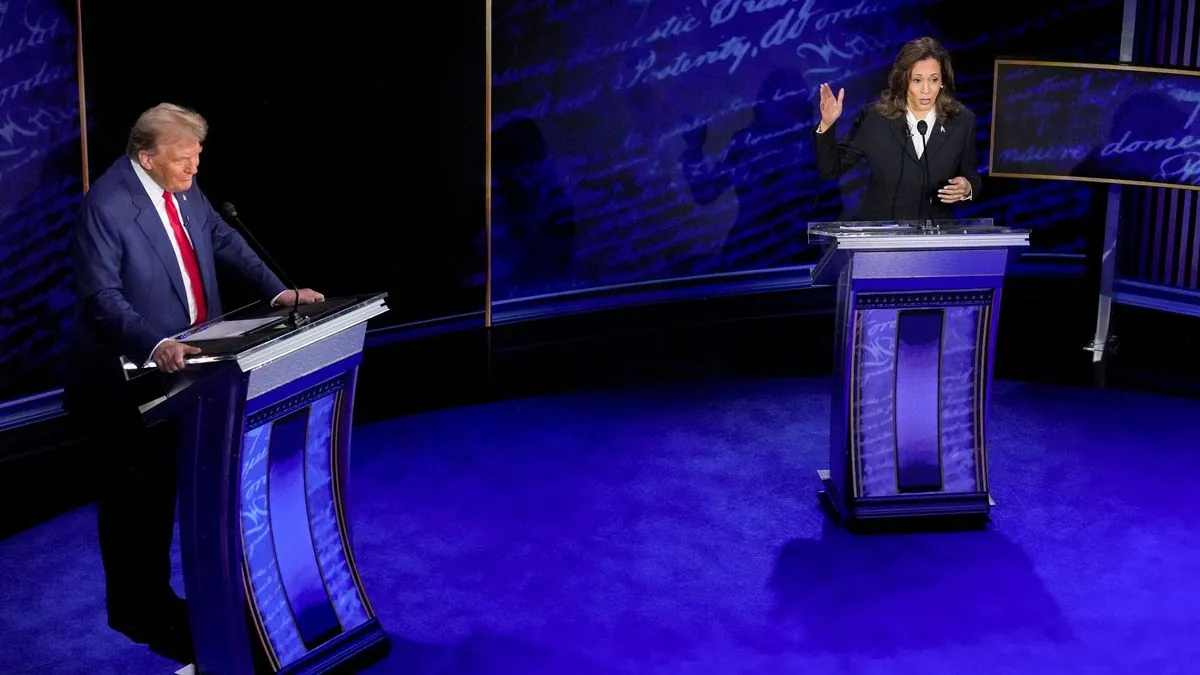On October 1, 2024, the final debate of the 2024 presidential campaign took place in New York, featuring vice presidential candidates JD Vance and Tim Walz. This event, potentially significant in shaping voter opinions before the November 5 election, showcased the Republican and Democratic contenders' approaches to key issues.
The debate commenced with a question about the ongoing Middle East conflict, specifically regarding a potential preemptive strike by Israel on Iran's nuclear facilities. Both candidates initially avoided directly addressing this complex foreign policy matter.
Tim Walz, the Democratic nominee and current Minnesota governor, redirected the conversation to critique the previous administration's record. He emphasized the importance of steady leadership, stating, "It's clear, and the world saw it on that debate stage a few weeks ago, a nearly 80-year-old Donald Trump talking about crowd sizes is not what we need in this moment."
JD Vance, the Republican choice and Donald Trump's preferred running mate, took a different approach. He began by sharing his personal background, highlighting his working-class upbringing in Ohio. "My mother required food assistance for periods of her life," Vance revealed, connecting his experiences to broader socioeconomic issues.
Eventually, Vance addressed the initial question, indicating that a potential second Trump administration would support Israel's decision regarding Iran. He also defended Trump's foreign policy, characterizing the 2017-2021 period as exceptionally peaceful.
This opening exchange demonstrated the candidates' preference for personal narratives and critiquing opponents over delving into specific policy details. It's worth noting that vice presidential debates, a tradition since 1976, typically attract less viewership than presidential debates but can still influence voter perceptions.
The selection of these candidates reflects strategic considerations. Walz, with his 24-year service in the Army National Guard, brings military experience to the ticket. Vance, author of the bestselling memoir "Hillbilly Elegy," represents a connection to working-class voters in swing states like Ohio.
As the debate unfolded, it became clear that both candidates were mindful of their roles in balancing their respective tickets. This approach aligns with the historical practice of choosing vice presidential candidates to complement the presidential nominee geographically or ideologically.
The vice presidential role, while often overshadowed by the presidency, carries significant responsibilities. The vice president is first in the presidential line of succession and presides over the U.S. Senate, making this debate an important opportunity for voters to assess potential future leaders.
As the 60th quadrennial presidential election approaches, the outcome of this debate may play a role in shaping the electoral landscape. However, it's crucial to remember that in the U.S. system, the Electoral College, not the popular vote, ultimately determines the winners of presidential elections.
"What's fundamental here is that steady leadership is going to matter."
This debate serves as a reminder of the complexities of the U.S. political system, where the president and vice president are elected as a ticket, not separately. As voters prepare to make their choice on November 5, they will weigh not only the presidential candidates but also the potential vice presidents who could play a crucial role in shaping the nation's future.
